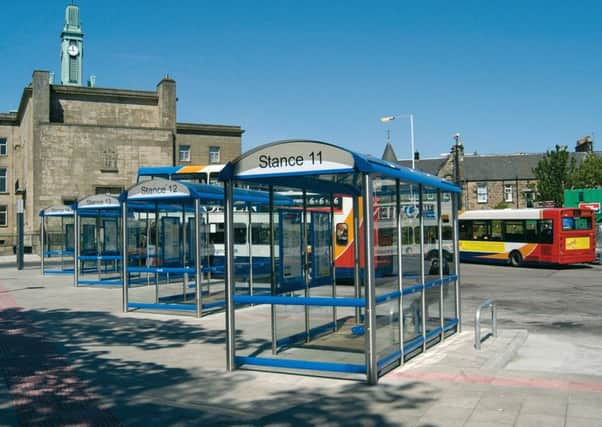Fife launches ‘community conversation’ on transport services


Fife Council is to use subsidised passenger transport services to test “participatory budgeting” as a way of involving Fifers in deciding how resources should be prioritised.
Transport services has a budget of £22 million.
A long public engagement process is planned, starting in August and September, to raise awareness of the reasons people travel around the Kingdom, the services the council provides and explore whether resources could be used better.
Advertisement
Hide AdAdvertisement
Hide AdSubsidised passenger transport covers a wide range of services, including supported bus services, rail concessions, school transport and ‘demand responsive transport’, which can be booked on an as-required basis by elderly/disabled residents.
You may also be interested in:
Council co-leader Councillor David Ross said there had been participatory budging exercises before but on a more local level to distributre small grants, such as involving residents in Cowdenbeath on spending £250,000 in the area as part of the Oor Bit project.
He said these would continue but this latest decision shows the council’s committment to making it easier for people to get involved in designing local services.
“This is about opening up a much broader conversation, giving people a better understanding of the context the council’s working in and sharing ideas about different solutions,” Cllr Ross said.
Advertisement
Hide AdAdvertisement
Hide AdHe explained that it would not be a straightforward consultation on what was spent. Instead there would be several phases of engagement exploring a complex set of services linked to policy decisions and contractual arrangements.
“It’s a new approach that will develop as we go and it will be more challenging than asking a fixed set of questions – but it’s a challenge that we’re up for in the interests of greater participation throughout our communities,” he said.
Co-leader Councillor David Alexander said: “Giving more people a chance to have their say about the services they receive can only be a good thing.
“Making more use of online tools for interactive debate will open up the process to people who find it physically difficult to attend drop-in sessions or those who lack confidence to contribute in face-to-face events.”
Advertisement
Hide AdAdvertisement
Hide AdHe added that there would be also be alternatives to online.
“No one’s really tried this kind of participatory exercise linked to a core part of their budget before,” Cllr Alexander said.
“The process probably won’t be perfect, but it will be better than not trying it, and we’ll learn from everything we do so that, as a council, we can keep getting better at including residents in every stage of service planning and delivery.”
Background information will be made available before people are invited to discuss how services should look in the future. This will then shape a set of options, which will take account of practical or commercial issues.